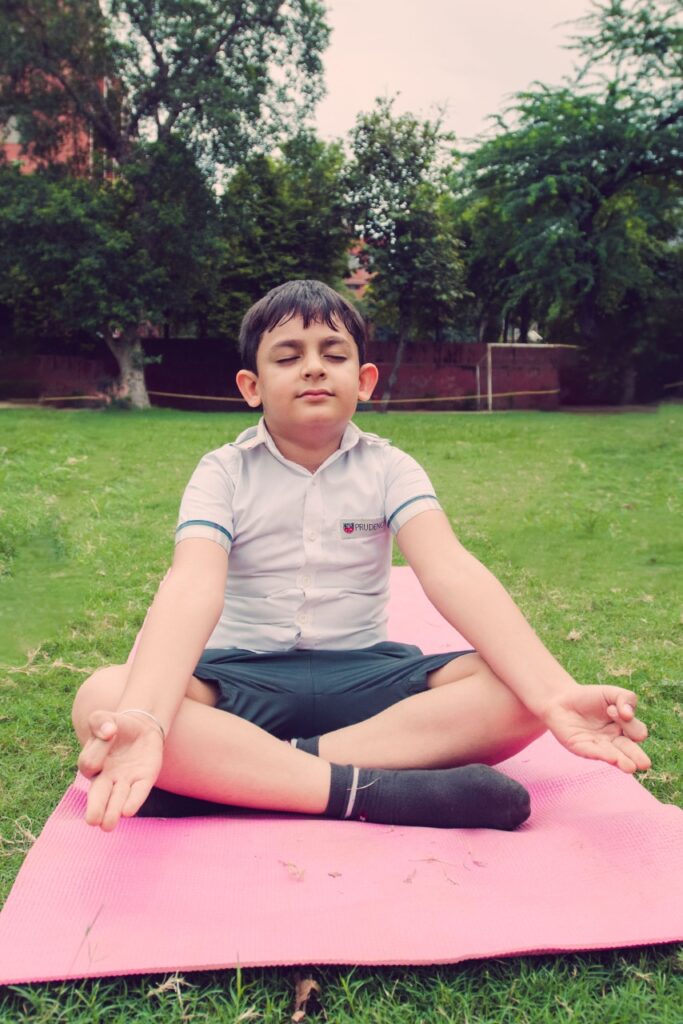Exam season is challenging. The palpitation you feel is intense. It is normal to feel a little overwhelmed when studying for examinations because it is not an easy undertaking. Nonetheless, remember that you can handle it.
You all are children of a brave new world. You all are far more intelligent than you may think of yourself and each of you has the minds of great leaders. You need to explore the boundless energy and strength you have been gifted with. Think positive and do not see the challenge ahead of you as something so big that you cannot get around it. You just need to make use of some stress-relieving techniques. It can be quite helpful.

Take control of your inner self: Firstly, do understand it is absolutely normal for students to have anxiety before exams, especially high-stake board exams. However, a moderate amount of anxiety can often help you prime yourself, sharpen your focus and enhance concentration. Whereas too much anxiety can worsen exam performance. Specifically, intense worrying or nervousness can cause racing thoughts, poor concentration, insomnia, tiredness, headache, sweating, and many other problems. Hence you must take control of your inner self.
Keep away all distractions: Keep at bay any social media sites you use for entertainment, such as Facebook, WhatsApp, and others, which, on an average day, eat up more than half of your time. These act like viruses and can harm your system without your knowledge. Avoid them, especially at this time when time is more valuable than anything else because they are time wasters. Keep persistently inching towards the greater goal of your life by working hard towards reaching it.
Time is very Precious! You must realise that time is really valuable. You must have some degree of time management if you want to get the most out of your studies, especially for an exam. Even though each of us only has 24 hours a day, the more intelligent people manage to do a lot in that time.
Prioritize: Try first to organise the confusion in your head. Don’t let the enormous pile of board exams in front of you overwhelm you. Instead of organising everything at once, concentrate on completing one step of the ladder at a time. Focus on the most important thing. Even though you might think that everything is important, you should only focus on one subject at a time.

Set up a productive schedule: Tasks that you find particularly unpleasant, or uncomfortable should not be postponed or delayed. So that you don’t have a nagging feeling about that specific duty in the back of your mind, pick that up as soon as you can and get it out of the way. Depending on the significance, give each topic a specific amount of time. Set a deadline for finishing your studies. Continue revising. What you have learned will stick with you for a very long time when you review, and revisit it several times.
Keep yourself motivated: Maintain your energy by being at ease with yourself after a long day of work or study. Sit in the garden or on the terrace, or in some quiet corner of the house facing the open outside, stretch and take deep breaths while taking in the scenery. A healthy diet that comes from Mother Earth must be balanced. In addition to them, keep feeding your mind with uplifting ideas. Talk to someone who makes you feel happy -your mother, favourite teacher, or closest friend! One intriguing thing about making oneself happy is, we can trigger it even with a simple act of Smiling and laughing even when you do not feel like it. Just unwind.

Keep yourself refuelled: Get enough rest and sleep. Don’t sacrifice sleep to study. That will interfere with your biological clock and simply make you weaker. Reduced focus and emotional fluctuations are related to less sleep. Therefore, getting a good night’s sleep is crucial to functioning normally and lowering stress.
Exercise: Low-intensity aerobic activity is the best type of exercise for promoting optimistic thinking and enhancing attentiveness. Academic achievement and memory performance are also enhanced by exercise. Exercise improves neuron connections, which in turn improves
information processing and is beneficial for learning. Therefore, start working out more, if you want to improve your memory.
Be intensively focussed: Do not do any task half-heartedly or with split attention. Do short bursts of work rather than lengthy ones. A stretch of 30 minutes of intensive study and then a break for 5 to 10 minutes is good practice. Attention span needs to be considered.
Revise and Practise the Previous Papers: Another important thing to consider and concentrate on is to ask oneself a huge question: How can I now recollect what I have studied intelligently? According to studies, thoroughly revising and revisiting the material you have learned is the greatest approach to retaining and recalling what you have learned.

Have confidence in your strategy and execution: Don’t compare yourself to others. Each person has a unique way of studying and learning. Therefore, do not worry about the style or system that another is using. You will lose focus, possibly become anxious, and potentially slow down your pace of advancement if you keep an eye on how others are moving along quickly. Feel at ease following your plan, maximise your effort, and prefer to compete with your own prior success.
Remove all bad energy from your body. Avoid panic. Relax and take it easy.
Be Exam Warriors! Not Exam Worriers.
